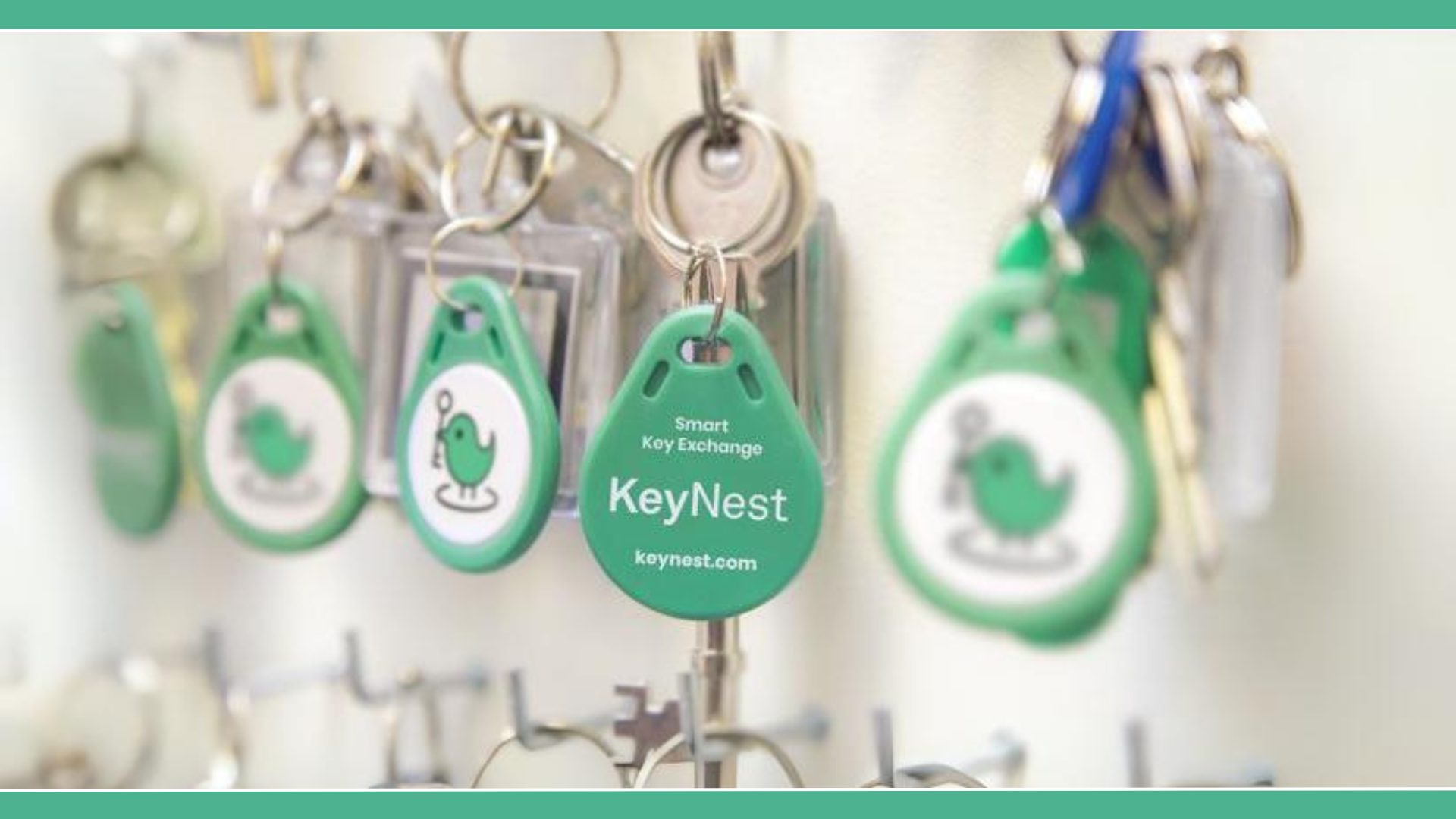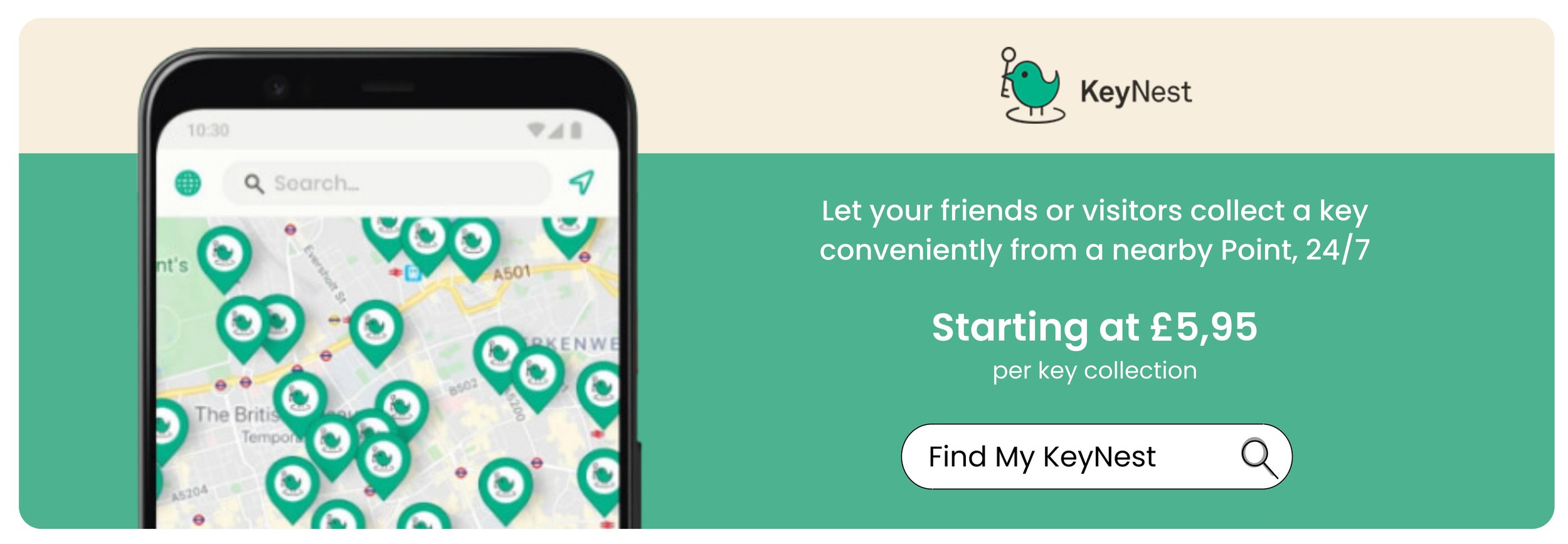Over 1500 key exchange locations nationwide
Understanding Airbnb Regulations In Liverpool
Navigating the world of regulations for short-term rentals in Liverpool can be a tricky yet essential aspect of being a successful host. Liverpool is a thriving city for the Airbnb market with its vibrant culture, historic landmarks and bustling tourist economy. However, hosting on Airbnb isn’t as simple as listing your property and welcoming guests.
Local authorities have specific rules and regulations that hosts must follow and failing to comply can lead to fines or even legal action for your rental property. From zoning restrictions to safety certifications, it’s important to understand what’s required before diving into the world of rental market.
Additionally, recent trends suggest that regulations from the city council for a rental property in Liverpool are tightening making it crucial for accommodation hosts to stay informed. This guide will help you navigate Liverpool’s Airbnb short-term rental market local regulations with confidence ensuring your hosting experience is both adheres to the licensing scheme and safety regulations.
Whether you’re a new property owner or a host looking to fine-tune your approach, understanding these rules will save you time, money, and stress. Let’s explore the key points that every Airbnb host in Liverpool should know to help keep optimise their listings compliancy and competitiveness.
Why Regulations Are Important For Liverpool Airbnb Hosts
Airbnb regulations are vital for creating a balanced and sustainable short-term rental market in Liverpool. These rules help protect the interests of both hosts and guests ensuring fair and ethical practices in hosting Airbnb in Liverpool. For hosts, regulations provide a clear framework to operate legally and avoid fines or legal disputes. Knowing these proactively will give you, as hosts, time to enhance your listing's appeal while guests, on the other hand, benefit from safer and better-maintained amenity accommodations that meet established standards.
In a city like Liverpool, with its blend of residential areas driven by the city's bustling tourism, regulations help maintain harmony between visitors and locals leading to a lucrative revenue stream. Without these rules, neighborhoods could face tenancy disruptions by the diverse lodging options such as noise complaints, overcrowding or a loss of long-term housing options.
For hosts, compliance with regulations builds trust with guests, as it signals professionalism and accountability which is crucial for operating. Meeting safety requirements, like installing smoke detectors and conducting fire risk assessments enhances the guest experience and reduces liability risks.
Liverpool City Council Airbnb management regulations also play a role in protecting the city's infrastructure by ensuring that these holiday let Airbnb properties contribute success in Liverpool. These rental regulations include paying council taxes and fees which support public services and community development. Additionally, clear regulations create a level playing field for all let properties in rental business preventing unfair competition from those who might cut corners which had reshaped its accommodation landscape
In the broader context, Liverpool’s short-term rental rules reflect the city’s commitment to balancing its growing tourism industry with the needs of its residents. By adhering to these rules, landlords in Liverpool contribute to a more sustainable tourism model that benefits everyone involved.
Regulations also future-proof your hosting business by understanding the nuances and ensuring it remains adaptable to changing laws and market demands in Liverpool's rental market. While some may view these requirements as hurdles, they are essential for long-term success in the competitive Airbnb landscape of listing in Liverpool.
Ultimately, embracing regulations is not just about legal compliance; it’s about fostering a positive reputation enhancing guest satisfaction and contributing to Liverpool’s thriving tourism sector which all is important for hosts to understand.
Current Licensing Requirements For Liverpool Airbnb Hosts
Licensing requirements in Liverpool can feel overwhelming but understanding and complying to them is the first step toward becoming a compliant host. Hosts must be aware of planning permission, safety certifications and potential landlord licensing needs, depending on the property’s location.
It’s also important to keep an eye on updates to these regulations as changes could impact your listing. While this may seem daunting, breaking down each requirement into actionable steps can make the process more manageable.
Below are the key points to keep in mind when it comes to licensing requirements for Airbnb hosts in the heart of Liverpool:
Planning Permission: Ensure your property isn’t located in certain areas where a restricted zone is held up which prohibits short-term lets.
Selective Landlord Licensing: Depending on your area, the city council in Liverpool may require a selective licensing to operate legally into this dynamic city.
Health and Safety Compliance: Install smoke alarms, carbon monoxide detectors and other safety measures to meet requirements in some locations of the listing like a kitchen or bathroom.
Fire Risk Assessment: Complete a fire risk assessment to demonstrate that your property is safe for tourists and business travellers and meets safety and quality standards.
Public Liability Insurance: Invest in insurance to protect yourself against guest-related claims.
Record-Keeping: Maintain detailed information and records of all licenses, inspections, and tax payments to demonstrate compliance to tax obligations and regulations if inspected.
Common Challenges Hosts Face With Liverpool Regulations
Navigating Liverpool’s holiday let properties like Airbnb comes with unique challenges that hosts must address to succeed. Many hosts struggle to determine whether their property is in a restricted zone for short-term lets, as zoning rules can be complex and vary widely.
The licensing process itself can be time-consuming often requiring detailed paperwork and proof of compliance regarding short-term rentals in multiple months in a year. Another common hurdle is the cost of meeting health and safety requirements especially if upgrades are necessary for management services. Staying on top of regulation updates is also critical but can be daunting, as new rules may be introduced with little notice.
By being proactive and prepared, hosts can navigate these challenges effectively. We have listed these challenges for you offering insights and strategies to overcome them.
Key Challenges for Liverpool Hosts:
Restricted Zones: Determining whether your property is in a zone where short-term lets are limited.
Licensing Process: Navigating the paperwork and securing required permits in regards to the city's landlord licensing scheme.
Safety Upgrades: Covering the cost of necessary improvements, like installing fire safety measures.
Surprise Inspections: Being ready for compliance checks and inspection to ensure safety regulation are met of your Airbnb rental by local authorities.
Regulatory Changes: Keeping up with evolving rules and adapting quickly to new requirements.
How Liverpool’s Regulations Compare To Other UK Cities
The regulatory landscape for Airbnb hosts varies widely across the UK with some cities enforcing stricter rules than others. Liverpool’s approach focuses on licensing and planning permissions striking a balance between flexibility and oversight.
Other cities, however, may have stricter or more lenient frameworks depending on local housing market pressures and community concerns. Understanding how the city's regulations compare helps hosts evaluate their opportunities and adjust strategies accordingly.
Below is a breakdown of the key differences:
Liverpool Regulations:
Focus on planning permissions for restricted zones.
Requirement for selective landlord licenses in specific areas.
Emphasis on health and safety compliance with smoke alarms and fire assessments.
UK Government Regulations in General:
London: Enforces a 90-day annual limit on short-term lets without additional permissions.
Edinburgh: Requires hosts to meet strict licensing criteria, including neighbor consultations.
Manchester: Still developing specific short-term rental frameworks but may introduce licensing soon.
Other Cities:
Smaller cities like Bristol or York may embrace of short-term minimal regulations offering more flexibility for hosts.
Coastal areas such as Brighton might introduce stricter rules due to tourism-related housing pressures.
Rural areas often have little to no specific regulations, giving hosts more freedom.
Tips For Staying Compliant As An Airbnb Host At Liverpool
Staying compliant with Liverpool’s Airbnb regulations doesn’t have to be daunting if you follow these tips:
Research Local Rules: Stay updated on zoning restrictions and licensing requirements in your area.
Secure Proper Licenses: Ensure you have all the necessary permits, such as planning permission or landlord licenses.
Focus on Safety: Install smoke alarms, carbon monoxide detectors, and fire extinguishers to meet safety standards.
Keep Records: Maintain clear documentation of all permits, inspections, and guest bookings for accountability.
Monitor Updates: Regularly check for changes in local Airbnb regulations to avoid surprises.
Get Insurance: Invest to obtain an HMO comprehensive insurance to protect your property and guests.
Educate Guests: Clearly communicate house rules and policies to minimize risks.
Seek Professional Help: Consult legal or property experts to ensure full compliance with the law.
Airbnb Pricing Strategies At Liverpool: Maximizing Earnings And Guest Satisfaction
Setting the right price for your Airbnb in Liverpool is a crucial factor in attracting guests and maximising your revenue. The city’s vibrant tourism scene, coupled with its unique mix of attractions, makes pricing a strategic balancing act. Understanding what guests value most such as location, amenities and convenience can help you craft a unique pricing strategy that stands out.
Amenities like high-speed Wi-Fi, a fully equipped kitchen, and comfortable furnishings can justify a higher price point while appealing to more discerning travelers. Parking availability is another significant consideration, as Liverpool’s urban areas often have limited free parking, making off-street or reserved spaces a premium feature.
Sharing amenities like a kitchen gym, garden or laundry facilities with guests can add value to your listing and increase its competitiveness. However, hosts should be transparent about shared spaces in their descriptions to manage guest expectations effectively.
Additionally, understanding Liverpool’s parking regulations is essential for hosts and guests alike. Restricted parking zones, permits, and time limits can impact guest experiences, so providing clear instructions or offering parking solutions can make your property more appealing.
When it comes to average occupancy rates in Liverpool, hosts should consider seasonal trends. Peak seasons, such as summer and during major events like football matches or cultural festivals, see higher demand, allowing for increased nightly rates.
Conversely, the winter months might require competitive pricing or discounts to maintain occupancy. Dynamic pricing tools can help you adjust rates automatically based on demand, ensuring you stay competitive without leaving money on the table.
Important Points for Airbnb Pricing Strategy in Liverpool
Amenities to Consider:
High-speed Wi-Fi, fully equipped kitchen, and modern furnishings.
Shared amenities like a gym, garden, or laundry facilities, with clear guest communication.
Parking Regulations:
Restricted zones, permits, and time limits to keep in mind.
Offering off-street or reserved parking spaces as a premium feature.
Seasonal Occupancy Trends:
High demand during summer and major events like football matches and cultural festivals.
Lower demand in winter months, requiring competitive pricing strategies.
Dynamic Pricing:
Use tools to adjust rates automatically based on demand and competition.
Balance affordability with profitability to attract guests while maximizing revenue.
Transparency:
Clearly describe shared spaces and parking rules to manage guest expectations.
Provide detailed instructions to improve guest experience and reviews.
In Retrospect
Understanding and adhering to Airbnb regulations in Liverpool is essential for building a successful and sustainable hosting business. These rules not only protect guests and hosts but also help maintain the balance between tourism and residential life in the city.
By obtaining the necessary licenses and prioritizing safety measures, hosts can operate legally and confidently. While challenges like zoning restrictions and compliance processes may arise, staying informed and proactive makes a big difference. Liverpool’s regulatory environment may seem complex at first, but it’s manageable with the right preparation.
Compliance also paves the way for positive guest experiences, which lead to great reviews and higher occupancy rates. As the landscape of short-term rentals continues to evolve, hosts who prioritize regulation will be well-positioned for success. Ultimately, a well-regulated Airbnb listing not only enhances your reputation but also contributes to Liverpool’s thriving tourism scene.
About Us: KeyNest
It is vital for any hosts to sustain an efficient key management access to ensure your listing gets maintained in the Airbnb platform. That is why KeyNest, a leading smart key exchange service, is designed to simplify and secure the management of property access for hosts, property managers, and guests. With a network of thousands of partner locations worldwide, KeyNest ensures that keys are safely stored and easily accessible 24/7, providing a seamless solution for short-term rental hosts, including those on platforms like Airbnb.
Since its inception, KeyNest has revolutionized how property access is handled, eliminating the need for in-person handovers and providing an efficient alternative to traditional lockboxes or smart locks. Trusted by property managers across the globe, KeyNest's robust system ensures keys are always secure while maintaining accessibility.
Want to know more about KeyNest?
KeyNest offers you a convenient service for storing and exchanging your property keys. You can drop off a key at any of the 7,000+ locations in our network, so there’s one such Point located next to your property.
Guests, cleaners or contractors can then collect the key securely from a KeyNest Point or KeyNest Locker which is usually open 24/7. You'll be notified each time the key is picked up or returned, and you can even customize check-in and check-out times. By leveraging technology and a global network of locations, KeyNest continues to redefine property management, offering solutions tailored to meet the evolving needs of the rental market..
KeyNest has an ever-expanding global network of locations located just minutes from your property. To find out more you can contact us.
Neil Beltran 12 December 2024





